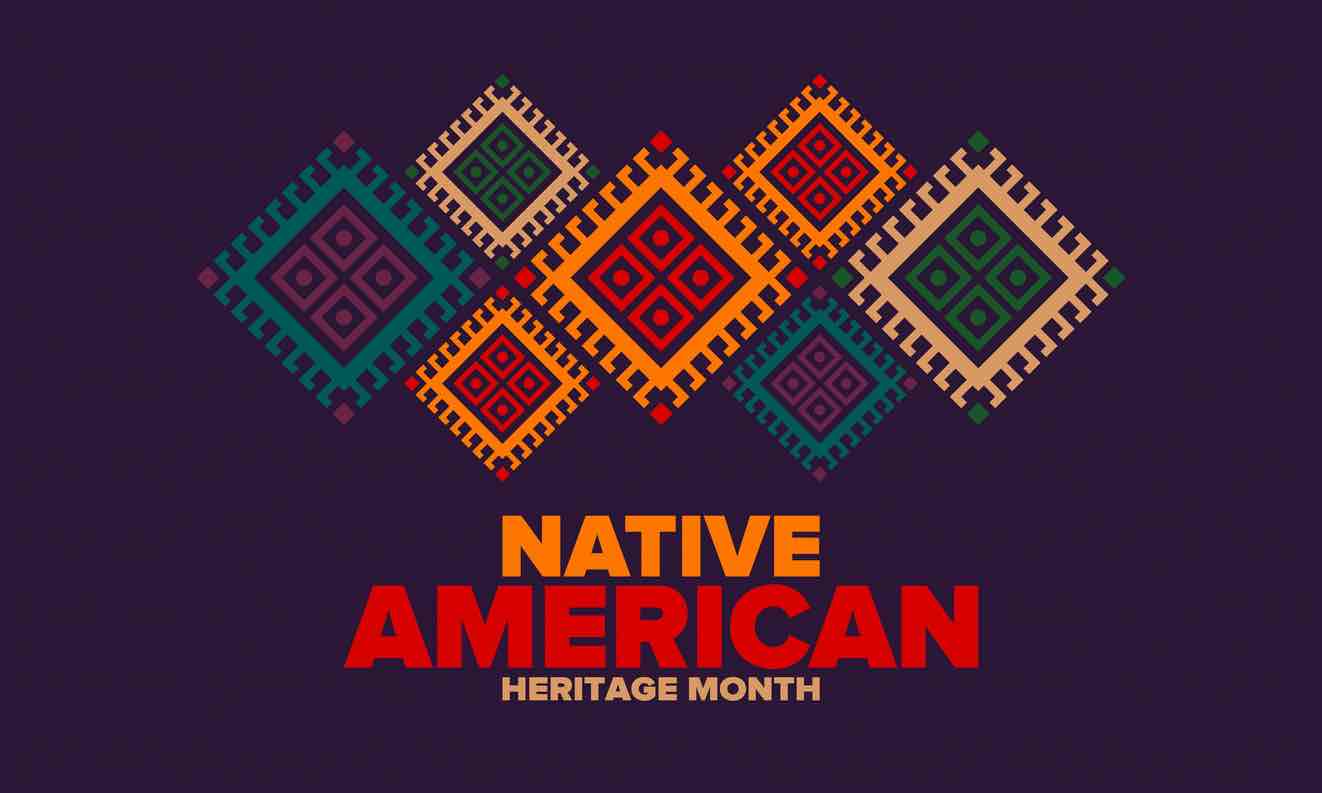
Each year in November, UHart celebrates Native American Heritage Month. Celebrating Native American Heritage Month provides an opportunity for education and reflection on the unique history, culture, traditions, and achievements of inhabitants and their descendants in the United States.
The origins of Native American Heritage Month can be traced back to the early 20th century when Native American advocate Arthur C. Parker, a Seneca archaeologist and historian, first proposed a day of recognition for Indigenous people. In 1915, he successfully convinced the Boy Scouts of America to designate an “American Indian Day." Over time, this idea grew into a nationwide effort. In 1990, President George H.W. Bush officially approved a joint resolution in November as "National American Indian Heritage Month." Similar proclamations, under variants on the name (including “Native American Heritage Month” and “National American Indian and Alaska Native Heritage Month”) have been issued each year since 1994. In 2021 and 2022, President Biden proclaimed Oct. 11 and 10 as Indigenous Peoples’ Day. Since then, Native American Heritage Month has continued to grow in significance and recognition across the United States
In 2021, the UHart Amplifying Indigenous Voices Affinity Group was created to support this honoring of the identities, history, cultures, and contributions of Native Americans. A land acknowledgement was created under the guidance of the Clan Mother of the Golden Hill Paugussett tribe in Trumbull, Conn., as well as goals and initiatives to further our work. More information can be found here: Indigenous Initiatives. We encourage everyone across the University to continue their own learning and understanding of Indigenous cultures and identities. If you are interested in joining the affinity group, please email Judy at wyman@hartford.edu
UHart is committed to promoting a campus community of cultural appreciation by fostering an environment of respect, inclusivity, diversity, and belonging.
Campus and Regional Programming:
Nov. 4–30
Native American Heritage Month at Foxwoods
Mashantucket, Conn.
Head down to the southeastern part of our state to Foxwoods and celebrate the rich diversity of Indigenous cultures and traditions through the power of art by checking out the Indigenous Artists Display in the Native Nations location. Located in the Great Cedar Concourse, guests can view visual art, paintings, traditional crafts, and baskets on display for purchase.
Monday, Nov. 6, 2023, 12:45–1:45 p.m.—Lunch and Learn series. Registration required via this online form.
“Indigenous/Native American Cultures and Perspectives: Growing the Conversation” Discussion Facilitators: Bevin Rainwater, Judy Wyman, & Olga Sharp
Indigenous/Native American culture and perspectives have been mostly erased from our educational system. Are you interested in discussing ways to re-integrate this content into your teaching and your courses?
Monday, Nov. 27, 6–7 p.m.—Honoring our Histories and Stories: What Does it Mean to be Native American?
West Hartford, Conn.
Panel on contemporary Native American Identities. The roundtable will be held at West Hartford Town Hall.
RESOURCES:
Books:
Local:
- "Red Road: Traditional Voice of Afro-American America," by Shoran Waupatukuay Piper
- “If You Lived During the Plimoth Thanksgiving,” Chris Newell (Scholastic, 2021)
- "Connecticut's Indigenous Peoples," Lucianne Lavin (2015)
- "Reclaiming Indignity and Sovereignty: Anti-Colonial Resistance among Indigenous Peoples in Northeastern Turtle Island," Leah Kelly (2021) available at: https://scholarship.claremont.edu/cgi/viewcontent.cgi?article=1151&context=pitzer_theses
National:
- “Braiding Sweetgrass,” Robin Wall Kimmerer
- “An Indigenous Peoples' History of the United States,” Roxanne Dunbar-Ortiz
- “They Called Me Uncivilized: The Memoir of an Everyday Lakota Man from Wounded Knee,” Walter Littlemoon & Jane Ridgway
- “Stringing Rosaries: The History, the Unforgivable, and the Healing of Northern Plains American Indian Boarding School Survivors,” Denise K. Lajimodier
Local Organizations:
- Nowashe Village (South Windsor, CT): https://nowashe.org/
Institute for American Indian Studies (Washington, CT): https://www.iaismuseum.org/
Maps:
Podcasts:
Videos/Documentaries/Movies/Shows:
Websites:
- Native Land Digital Map
- Akomawt—Connecticut-based educational team working to change the narrative around how Native American culture and history is taught and understood
- “American Transformed: Mapping the 19th century.” Boston Public Library exhibit on effects of westward expansion on Native communities.
- Native American Heritage Month website
- Native American Heritage Month Resources (PBS)
Land Acknowledgement:
We acknowledge that the University of Hartford resides on the historic homelands of the Sicaogs, Poquonocks, Wangunks and Tunxis; and that what is now called Connecticut encompasses the homelands of the Wappinger, Schaghticoke, Golden Hill Paugussett, Mohegan, Mashantucket Pequot, Eastern Pequot, Nipmuc, Quinnipiac, Niantic, and Lenape, as well as other Indigenous Peoples. We honor, respect, and appreciate the relationship that exists among these communities, nations, lands, and waterways, and aspire to uphold our responsibilities according to their example of stewardship.